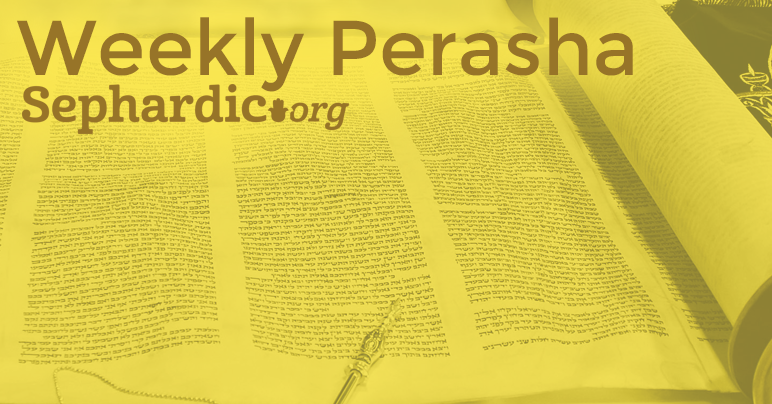
EKEV - THE BATTLE AT THE DINING TABLE
Moshe exhorts Israel (8:3) to know that Hashem fed them the Mahn during the 40 years in the desert to teach - that it is not by bread alone that man lives. The verse urges Israel to realize that the power to keep us alive does not reside in the purely physical but rather we exist via the divine spirituality within. The Torah terms this - מוצא פי ה׳ literally what comes out from the spiritual mouth of God; that resides within the physical food. A few verses later - the Torah issues an obligation requiring one who consumes bread and is satiated to issue blessings in the form of Birkat Hamazon. The Talmud (Yoma 75) considers the Mahn that fell to be the food of the angels - this is a coded message that its consumption did not require the same physical and spiritual purification process to remove any attached husks. The Torah issues numerous warnings - in that the process to extract holiness from לחם - requires adherence to the various rabbinic rulings that are to accompany its consumption. If any are grossly ignored the spiritual chaff in the form of arrogance will become attached to the eater - leading him to forget God and strengthen idolatry.
THE TIKUN OF EATING
We must be reminded that we are in essence spiritual beings. Every act - even physical in nature effects all of the spiritual worlds. According to R. HaAri (SM Ekev) amongst the required meditations associated with eating - is to elevate the holiness that resides within the food whether essentially part of the inanimate, vegetative or animal kingdom towards the highest world of Asilut. Our Sages issued guidelines into how to best accomplish this task. The preparation of flour from the wheat stalk to edible bread must pass through eleven processes to reach completion - This of course is related to the punishment of Adam - incurred as a result of his consumption of the חטה - that according to one view was the fruit of the עץ הדעת - The decree reads בזעת אפיך תאכל לחם - The process to consume bread and its spiritual benefits will heretofore be a challenging endeavor. It will require much exerted energy to remove the negative husks prior and post consumption. Even the land was cursed - ארורה האדמה בעברך בעצבון תאכלנה - namely the spiritual earth from which all food emanates will be dominated by the קליפות nourished from the blemish of consumption. This sin of Adam - caused a descent of the worlds - giving birth to a new reality in that bread will need to pass thru and ascend via 11 processes just to be edible - These are associated with the initial 11 of 39 work requirements of the Temple. They are all of course forbidden on Shabbat - as on this holy day the worlds no longer reside in that lowly state of Adam after the sin. As we chant the liturgy of קבלת שבת even the lower worlds called בי״ע תחתונים ascend. Hence any action intimating that they indeed do remain below - will cause a new death or descent of the elevated worlds. Additional Tikunim include - setting the table - the washing and raising of the hands and accompanying Berakha. The way the bread is held - the dipping in salt three times - the actual grinding of the bread via the (32) teeth all arouse spiritual activity. The מים אחרונים - and even the holding of the כוס יין - when reciting the זימון and ברכת המזון - are all essential parts of the spiritual symphony in setting our table as one before God. As we (Yeh 41:22 see Avot 3:3) proclaim זה השלחן אשר לפני ה׳ - We know that the table is compared to the holy altar (Ber 55) or copper מזבח - and one’s eating upon it - is like the burning of the sacrifices ascending as a fire offering above. Eating properly is the method that we complete the מזבח ה׳ - while any fault in the holy act of eating can cause a blemish in the מזבח ultimately giving strength to the negative husks who stand by the table. If food is eaten improperly then these husks that lead one to idolatry will be nourished.
THE HUSK WHO NOURISHES FROM A BLEMISHED ALTAR - TABLE
The power from which עבודה זרה - is strengthened comes from the blemish of the מזבח - The abundance given to the negative husk enables it to establish an illusionary entity of its own. According to the Zohar (2:139) the copper altar is associated with the spiritual level called the שכינה - or the reservoir of אצילות - It stands on the border of holiness - It is called in the Petah Eliyahu “Malkhut” - It is of course related to the Mouth. Eating must be a lofty devotion - but if blemished - the holy table becomes replaced with a foreign force called by our Sages in Pirke Avot זבחי מתים - The Torah warns us of this pitfall - in a verse 8:14 And lest your heart be lifted and forget - R. Nahman (Ber 32) teaches that this negativity comes to us as a result of eating merely to fill up our stomachs - taking note that the verse preceding this warning of arrogance is - Lest you eat and be satiated. The husk of arrogance draws its sustenance from a blemished table. For God declares where the proud exists I cannot reside. In the passage (11:16) והיה אם שמוע found in our parasha the Torah warns “You may eat and be satiated...Take heed...that your heart does not open itself to being led astray and you turn aside to serve other gods.” We are not to give any room to foster an inner seduction of arrogance via eating with improper intention. The Talmud (Sotah 4-5) teaches that those who act in arrogance are in violation of a sin as serious as idol worship. All this is to serve as a warning that all of the rabbinic rules surrounding eating including the requirement to speak words of Torah are to distance ourselves from the husk of arrogance which attempts to latch on to us to prevent us from elevating the sparks of holiness in the process. We in fact recognize this when we read the words of דוד המלך and assert תערך לפני שלחן נגד צררי - You prepare a table for me in view of my tormentors.
BIRKAT HAMAZON - FOURTH BERAKHA
The editor of באתי לארמוני - in עקב - apparently elucidates or translates the meditations put forth by the רש״ש concerning the blessings before and after eating bread. He writes that the blessing of המוציא draws down the אור מקיף while the meditative eating transforms or can illicit the אור פנימי - Finally the four blessings comprising ברכת המזון draws down four מוחין or four types of influx into the spiritual altar - called the vessel of the שכינה - This level is called פי ה׳ or the celestial mouth of the spiritual worlds. This is the unblemished reservoir from which the holy nourish. One of the meditations taught by R. HaAri of why we stress the ה׳ of the word המוציא לחם מן הארץ - is to take note that the לחם represents the three Hasadim that are brought forth towards the lower ה׳ - or spiritual land. The fourth מוח was added by the Sages in Yavneh (Ber 48) as a result of the fact that millions of Jewish bodies from the Roman onslaught at Betar did not decay for seven years when they were finally permitted burial. R. HaAri teaches that burial represents a Tikun in the secret of אל עפר תשוב - returning to dust. The שבילי פנחס cites the בעל שם טוב - in that a deceased person can reincarnate into human food (dust) - We can then assert that the event served as an opportunity for the dead at Betar to return spiritually - to the level of the inanimate (dust) - giving these un-rectified souls a new opportunity to ascend together with the sparks that are elevated thru eating. This event marked a spiritual reality where the fourth מוח can now descend with this remembrance. This fourth מוח is called גבורות דדעת - and requires sweetening via the thrice mentioning of טוב and גמלנו - In the secret of הוא הטיב לנו הוא מטיב לנו הוא יטיב לנו -
CONCLUSION
It would appear that eating and its associated processes can elevate both souls (of Betar?) that have descended and sparks that are entrapped in the lower levels of creation. In addition our very existence is dependent upon our spiritual nourishment found within the food. The spiritual food when eaten properly is brought to the unblemished altar called the “mouth” or פי יהו״ה - The Torah warns that eating is a spiritual endeavor and should not be approached without taking into consideration all of the rulings of our Sages. If eating is approached simply as a physically pleasurable pastime the negative husk of arrogance will be activated. This is synonymous with ultimately forgetting God - Our Sages have warned us extensively of the pitfalls of these husks - and have added rulings with regards to eating and drinking from and with idolaters. This is especially true of their bread and wine and foods that are fit to ascend on the tables of kings. According to the Talmud (San 98) The prohibition to offer on the מזבח any leaven or honey is due to the idea that these foods swell - It is to serve as a reminder that our tables must be established to prevent access to haughtiness - rather they should serve as unblemished altars set before God.
Shabbat Shalom
Victor Bibi








